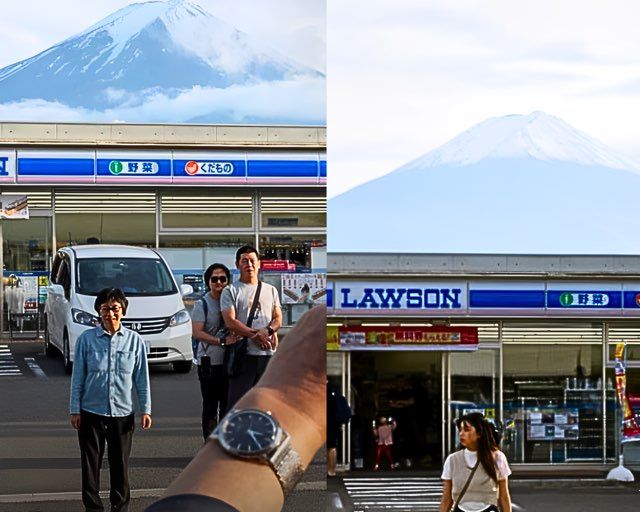In a striking development, Japan’s iconic Mount Fuji has not seen a single flake of snow. This marks the latest date without snow in 130 years.
This unusual occurrence has raised eyebrows among climate experts and environmentalists alike.
NO SNOWCAP ON MOUNT FUJI
The absence of the snowcap, which typically begins forming in early October, has prompted discussions about the impact of climate change on this majestic peak.
Mount Fuji, standing tall at 3,776 metres, is a symbol of Japan, according to Business Today.
It attracts countless tourists and climbers each year, with over 220,000 people scaling its slopes during the peak hiking season from July to September.
MOUNT FUJI’S SUMMIT
Many trek through the night to witness the breathtaking sunrise from the summit.
However, this year saw a decline in visitors, largely due to new measures aimed at tackling overtourism.
Japanese authorities introduced an entry fee and imposed a daily cap on the number of climbers. This resulted in a 14 per cent drop in numbers compared to previous years.
Historically, Mount Fuji begins to don its snowy attire around 2 October.
MOUNT FUJI AND CLIMATE CHANGE
Last year, snow was first recorded on 5 October.
The current record-breaking date has shattered previous milestones, surpassing the prior latest dates of 26 October. They were were observed in 1955 and 2016.
“This is unprecedented,” said Yutaka Katsuta, a forecaster at the Kofu Local Meteorological Office.
“The high temperatures we’ve experienced this summer have persisted into the autumn, preventing the cold air needed for snow formation.”
WEATHER CHANGES
Shinichi Yanagi, another meteorological officer, echoed these sentiments.
“The continuous high temperatures and rainfall have kept Mount Fuji’s slopes bare.
This is a clear indication of changing weather patterns.”
Both experts acknowledge that these shifts may be linked to broader climate change trends affecting not only Japan but the entire globe.
CLIMATE CHANGE AND SOUTH AFRICA
This news resonates even in South Africa, a nation grappling with its own climate-related challenges.
As temperatures rise and weather patterns shift, the world is witnessing an alarming trend, according to The Gaurdian.
Extreme weather events, droughts, and shifting rainfall patterns are affecting agriculture and water supply.
The changes seen in Mount Fuji serve as a poignant reminder of the urgent need for climate action, not just in Japan, but worldwide.
CLIMATE CHANGE AND COMMUNITY
The implications of a snow-less Mount Fuji extend beyond just aesthetics.
Snowmelt from the mountain provides crucial water resources for surrounding communities.
With climate change threatening these vital supplies, South African farmers and citizens alike must remain vigilant, according to ABC News.
“We are all interconnected,” says Dr. Thandiwe Moyo, a climate scientist based in Johannesburg.
“What happens in Japan can have ripple effects here in South Africa. We must take these warnings seriously.”
ENVIRONMENTAL SUSTAINABILITY
Furthermore, the hiking season’s decline in visitor numbers reflects a growing awareness of environmental sustainability.
People are beginning to understand the importance of preserving natural wonders like Mount Fuji.
The introduction of entry fees and reservation systems highlights a shift towards responsible tourism. This shift is essential, especially as more people seek to connect with nature while also protecting it.
SAFEGUARDING THE ENVIRONMENT
As the world continues to grapple with the consequences of climate change, Mount Fuji stands as a stark symbol of what is at stake.
The snow-less peak serves as both a wake-up call and an opportunity for reflection.
The future of this majestic mountain—and the water resources it provides—hinges on our collective response to climate change.
It is imperative that we take action now to safeguard not just our environment, but the natural beauty that draws visitors from around the globe.
WHAT ACTIONS DO YOU THINK WE CAN TAKE TO COMBAT CLIMATE CHANGE?
Let us know by clicking on the comment tab below this article or by emailing info@thesouthafrican.com or sending a WhatsApp to 060 011 021 1.
You can also follow @TheSAnews on X and The South African on Facebook for the latest news.
